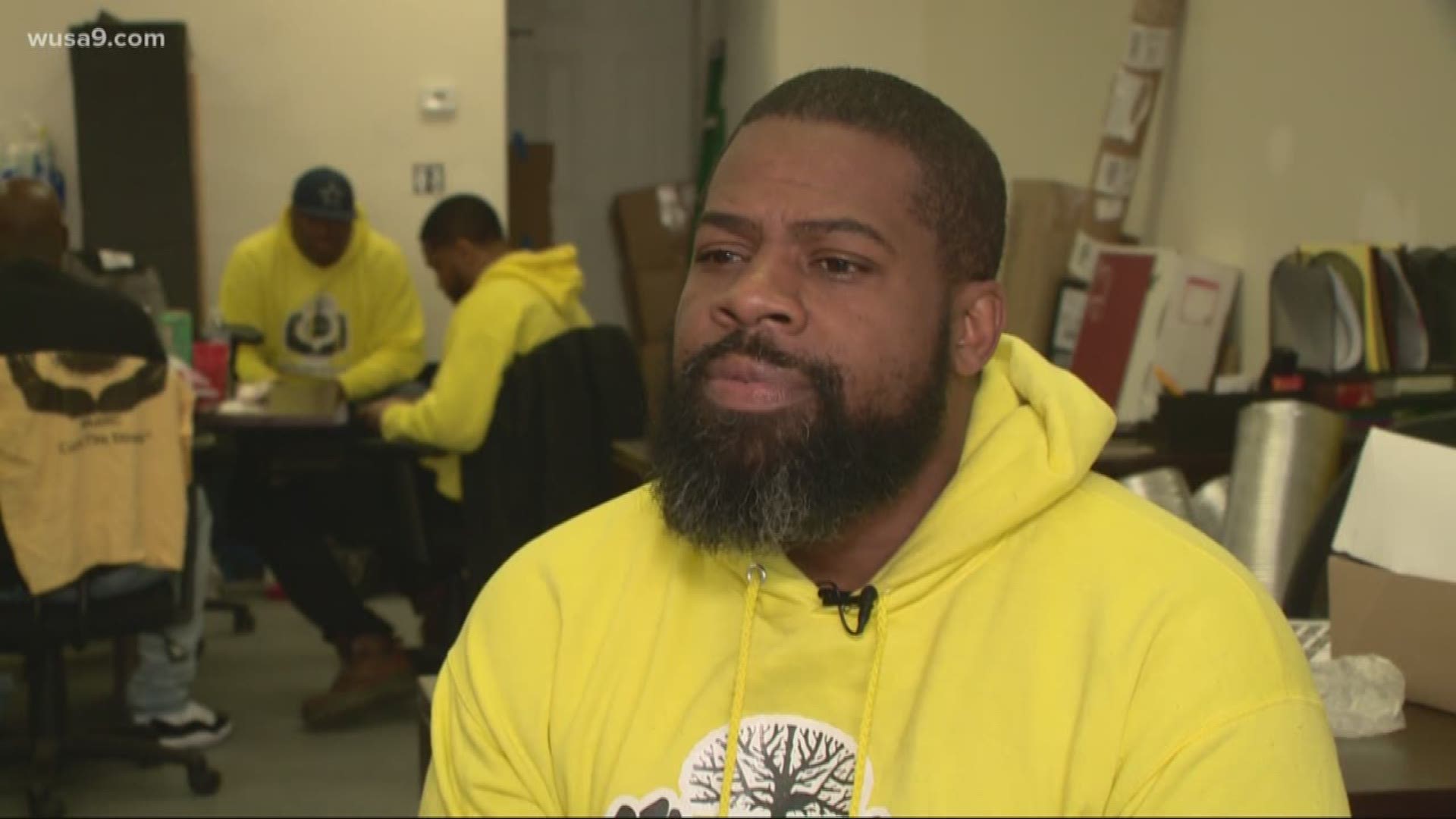WASHINGTON, D.C., USA — Last year, the District's homicide rate rose about 40%, ending with 160 murders on D.C.'s streets in 2018 (compared to 116 homicides recorded year before). The increase has sadly spilled over into the New Year. As of February 21, 2019, MPD stats say DC’s homicide rate up 53%.
City leaders have installed two different “Violence Interrupter” programs to address this. One is run through the D.C. Attorney General’s Office. It’s called “Cure the Streets.”
This program has about 20 members who know how bad D.C.’s streets can get.
“Getting shot 5 times, you think you would change your life – five different times. So you know, it didn’t,” said Cotey Wynn.
Now, at age 37 and in a bright yellow “Cure the Streets” sweatshirt, Wynn is one of 10 “Cure the Street” team members operating in the Trinidad neighborhood of Northeast Washington D.C. The Attorney General’s Office recruited Wynn and others because of their backgrounds.
“I was on a case where I was charged with Murder 1 and uh, actually it was five. And I was, I had to go to trial and I was found not guilty of all of them – the cases and I lost of an obstruction of justice and carrying a pistol without a license,” said Wynn. The 37-year-old tells WUSA 9 he served 10-years in prison before winning an appeal.
“I was born and raised in the Trinidad Community and I used to be part of the problem,” said the 37-year-old.
“I still have a bullet in my neck,” Wynn showed WUSA 9. Now his message is very different. It’s this: “Where you going and where you heading, I been already.”
Walking the streets and sharing their very real stories – that’s how Wynn and the team are trying to stop gun violence in D.C.
RELATED: DC officials stiffen message after uptick in violence: Felons with guns headed to federal court
“It done been times when I walked up and there was two guys weapons pointed at each other but you know, we defused that,” he said. Mediating is part of his role as a Cure the Streets Violence Interrupter.
The job comes from the national CURE Violence model, which looks at gun violence as a public health issue. The approach is three fold: interruption (trying to stop fights before they happen), mediating (helping two parties resolve a dispute) and treating individuals (by connecting people to needed resources).
D.C. has two Violence Interrupter programs. The AG Office’s program focuses specific neighborhoods in Ward 5 and Ward 8.
“We’ve been writing about this for the 3.5 years,” said D.C. Attorney General Karl A. Racine.
Racine tells WUSA 9, “If I’m not mistaken, last year there were 13-juveniles who were killed just last year. So that obviously concerns us. And yes, when we prosecute kids, we are seeing an increase in the number of kids who are, you know, frankly just consumed with guns.”
The Attorney General’s Office says in the past six months they’ve been operating the pilot program, not one murder has taken place in their two sites.
It’s also two-fold. Wynn says this job is helping him stay on the right track.
“In the community, the same people who saw me do wrong now they see me doing right. It’s a big impact because they love what I’m doing and you know basically keep the violence down in Trinidad,” said Wynn.
The Attorney General and the Violence Interrupters all say one of the most important part of this program is that NONE of the Violence Interrupters report or share information with police. That’s how they help build community trust.
D.C. Mayor Muriel Bowser recently announced a $2 million investment into the AG Office's Cure the Streets program.

